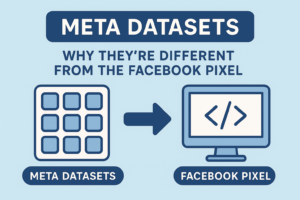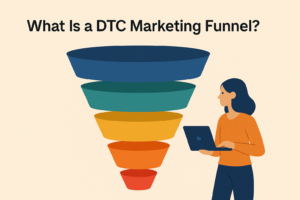In the rapidly evolving real estate industry, big data analytics is transforming the way property investors, managers, and developers make decisions.
By harnessing the power of big data, stakeholders can gain actionable insights that drive profitability, efficiency, and strategic growth. This blog delves into the opportunities and challenges of leveraging big data in real estate, exploring the tech stack typically used, real-world examples, and the profound impact on various facets of the industry.
Understanding Big Data in Real Estate
Big data refers to the vast volumes of structured and unstructured data generated from various sources, including transactions, social media, sensors, and mobile devices. In real estate, big data encompasses information on property values, market trends, demographic patterns, tenant behaviors, and more. The ability to analyze and interpret this data can significantly enhance decision-making processes for investors, managers, and developers.
Opportunities of Big Data in Real Estate
1. Enhanced Market Analysis and Forecasting
Why It Matters:
Big data enables precise market analysis and forecasting, allowing stakeholders to identify emerging trends, assess market conditions, and make informed investment decisions.
Examples:
- Investment Decisions: Investors can use big data analytics to identify high-potential investment opportunities by analyzing historical price trends, rental yields, and economic indicators. For instance, predictive analytics can forecast future property values based on current market conditions.
- Development Planning: Developers can leverage big data to identify optimal locations for new projects by analyzing demographic data, infrastructure developments, and competitor activities.
According to a report by Deloitte, 62% of real estate firms use big data analytics to improve market analysis and forecasting.
2. Improved Property Valuation and Pricing Strategies
Why It Matters:
Accurate property valuation is crucial for buying, selling, and financing real estate. Big data analytics can enhance valuation models by incorporating a wide range of variables, including location, property features, market conditions, and economic factors.
Examples:
- Automated Valuation Models (AVMs): AVMs use big data to provide accurate property valuations in real-time, helping investors and lenders make informed decisions. For instance, Zillow’s Zestimate leverages big data to estimate property values based on millions of data points.
- Dynamic Pricing: Property managers can use big data to implement dynamic pricing strategies, adjusting rental rates based on demand, seasonality, and competitor pricing.
A study by McKinsey found that big data can improve property valuation accuracy by up to 15%.
3. Enhanced Tenant Screening and Management
Why It Matters:
Effective tenant screening and management are essential for maintaining high occupancy rates and minimizing risk. Big data can streamline these processes by providing comprehensive insights into tenant behaviors and preferences.
Examples:
- Tenant Screening: Landlords and property managers can use big data to assess tenant credit scores, rental histories, and social media activity, reducing the risk of default and improving tenant quality.
- Tenant Retention: By analyzing tenant feedback, maintenance requests, and occupancy patterns, property managers can implement targeted retention strategies, such as personalized communication and timely maintenance.
According to TransUnion, property managers who use data-driven tenant screening experience a 50% reduction in tenant evictions.
4. Predictive Maintenance and Operational Efficiency
Why It Matters:
Predictive maintenance uses big data to anticipate equipment failures and schedule timely maintenance, reducing downtime and repair costs. Additionally, big data can optimize operational efficiency by streamlining property management processes.
Examples:
- IoT Sensors: Internet of Things (IoT) sensors can monitor building systems (HVAC, plumbing, electrical) and send data to predictive analytics platforms. For instance, a smart HVAC system can predict when a component is likely to fail and schedule maintenance before a breakdown occurs.
- Resource Optimization: Property managers can use big data to optimize resource allocation, such as energy consumption and staff scheduling, leading to cost savings and improved operational efficiency.
Gartner reports that predictive maintenance can reduce maintenance costs by 20% and minimize downtime by 50%.
5. Enhanced Customer Experience and Personalization
Why It Matters:
Big data can help property managers and developers create personalized experiences for tenants and buyers, enhancing satisfaction and loyalty.
Examples:
- Smart Homes: Smart home technologies can collect data on occupant preferences and behaviors, enabling personalized automation of lighting, heating, and security systems. For instance, a smart home system can learn a tenant’s daily routine and adjust the environment accordingly.
- Personalized Marketing: Real estate companies can use big data to tailor marketing campaigns to individual preferences and behaviors. For example, targeted email campaigns based on browsing history and previous interactions can increase engagement and conversion rates.
According to a study by Accenture, 91% of consumers are more likely to shop with brands that provide personalized offers and recommendations.
Challenges of Leveraging Big Data in Real Estate
1. Data Privacy and Security
Why It Matters:
The collection and analysis of large volumes of data raise significant privacy and security concerns. Ensuring data protection is critical to maintaining customer trust and compliance with regulations.
Challenges:
- Regulatory Compliance: Real estate companies must comply with data protection regulations, such as GDPR in Europe and CCPA in California, which govern how data is collected, stored, and used.
- Cybersecurity Threats: The risk of data breaches and cyberattacks is a major concern. Implementing robust cybersecurity measures is essential to protect sensitive information.
In 2018, Marriott International faced a data breach that exposed the personal information of 500 million guests, highlighting the importance of data security in the real estate industry.
2. Data Integration and Quality
Why It Matters:
Integrating data from disparate sources and ensuring data quality are crucial for accurate analysis and decision-making.
Challenges:
- Data Silos: Real estate companies often deal with data silos, where information is stored in separate systems that do not communicate with each other. Integrating these data sources can be complex and time-consuming.
- Data Accuracy: Ensuring the accuracy and consistency of data is essential for reliable analysis. Inaccurate or incomplete data can lead to erroneous conclusions and poor decision-making.
A property management company may struggle to integrate data from different systems, such as CRM, ERP, and IoT platforms, leading to inefficiencies and inaccurate insights.
3. Technical Expertise and Infrastructure
Why It Matters:
Implementing big data analytics requires specialized technical expertise and robust infrastructure, which can be challenging for real estate companies to acquire and maintain.
Challenges:
- Skills Gap: There is a shortage of data scientists and analysts with the expertise to manage and analyze big data effectively. Real estate companies may need to invest in training or hire external experts.
- Infrastructure Costs: Building and maintaining the necessary infrastructure for big data analytics, including data storage, processing, and visualization tools, can be costly.
A mid-sized real estate firm may face challenges in recruiting skilled data professionals and investing in advanced analytics platforms, limiting their ability to leverage big data effectively.
4. Data Interpretation and Actionability
Why It Matters:
Extracting actionable insights from big data requires not only technical expertise but also the ability to interpret data and translate it into practical business actions.
Challenges:
- SComplex Analysis: The sheer volume and complexity of big data can make analysis challenging. Identifying meaningful patterns and trends requires sophisticated analytical techniques.
- Business Relevance: Ensuring that data insights are relevant and actionable for business decisions is critical. Real estate companies need to bridge the gap between data analysis and business strategy.
A property investor may struggle to translate complex data analytics into actionable investment strategies, resulting in missed opportunities or suboptimal decisions.
The Tech Stack for Big Data in Real Estate
To effectively leverage big data, real estate companies need a robust tech stack that includes data collection, storage, processing, and visualization tools. Here is an overview of the key components typically used in the big data tech stack:
1. Data Collection
- IoT Sensors: Devices that collect real-time data on building systems, occupancy, and environmental conditions (e.g., Nest, Honeywell).
- CRM Systems: Platforms that manage customer interactions and store data on tenant behaviors and preferences (e.g., Salesforce, HubSpot).
- Web Analytics: Tools that track website traffic, user behavior, and online interactions (e.g., Google Analytics, Adobe Analytics).
2. Data Storage
- Data Warehouses: Central repositories that store structured data for analysis (e.g., Amazon Redshift, Google BigQuery).
- Data Lakes: Storage systems that handle large volumes of unstructured and semi-structured data (e.g., Apache Hadoop, Microsoft Azure Data Lake).
3. Data Processing
- ETL Tools: Extract, Transform, Load (ETL) tools that integrate and prepare data for analysis (e.g., Talend, Apache Nifi).
- Big Data Processing Frameworks: Platforms that process large datasets using distributed computing (e.g., Apache Spark, Apache Flink).
4. Data Analysis and Visualization
- Analytics Platforms: Software that provides advanced analytics capabilities, including predictive modeling and machine learning (e.g., SAS, IBM Watson).
- Business Intelligence (BI) Tools: Tools that visualize data and generate reports for decision-making (e.g., Tableau, Power BI).
5. Security and Compliance
- Data Encryption: Techniques that protect data by encoding it (e.g., RSA, AES).
- Access Control: Systems that manage user access to data and ensure compliance (e.g., Okta, AWS Identity and Access Management).
Real-World Examples of Big Data in Real Estate
1. Zillow’s Zestimate
Overview:
Zillow, a leading online real estate marketplace, leverages big data to provide Zestimate, an automated valuation model (AVM) that estimates the market value of properties.
Data Sources:
- Public property records
- Tax assessments
- Recent sales transactions
- User-submitted data
Zestimate has become a trusted tool for homebuyers and sellers, offering accurate property valuations and enhancing Zillow’s market position.
2. Redfin’s Walk Score
Overview:
Redfin, a technology-powered real estate brokerage, uses big data to calculate Walk Score, a measure of a property’s walkability based on proximity to amenities.
Data Sources:
- Geographic information systems (GIS)
- Public transportation data
- Business directories
Walk Score helps homebuyers assess the convenience and livability of neighborhoods, influencing their purchasing decisions and adding value to Redfin’s services.
3. Prologis’s Predictive Maintenance
Overview:
Prologis, a global leader in logistics real estate, implements predictive maintenance using IoT sensors and big data analytics to monitor and maintain its properties.
Data Sources:
- IoT sensors on HVAC systems, lighting, and security
- Historical maintenance data
- Environmental data
Predictive maintenance has reduced operational costs, minimized downtime, and improved tenant satisfaction, demonstrating the efficiency and value of big data analytics.
Noteworthy Quotes from Leaders on Big Data in Real Estate
Spencer Rascoff, Co-Founder of Zillow:
“Big data allows us to provide accurate, up-to-date information on millions of homes, helping consumers make smarter real estate decisions.”
Glenn Kelman, CEO of Redfin:
“Leveraging big data and technology, we aim to make the process of buying and selling homes more efficient and transparent for our customers.”
Hamid Moghadam, CEO of Prologis:
“Predictive maintenance powered by big data analytics helps us operate more efficiently and deliver superior service to our tenants.”
Summary:
Leveraging big data in real estate offers tremendous opportunities for property investors, managers, and developers to gain actionable insights, enhance decision-making, and drive growth. From market analysis and property valuation to tenant management and predictive maintenance, big data is transforming the industry in profound ways. However, real estate companies must navigate challenges such as data privacy, integration, and technical expertise to fully realize the potential of big data analytics. By investing in the right tech stack and adopting best practices, real estate stakeholders can harness the power of big data to achieve strategic success.



